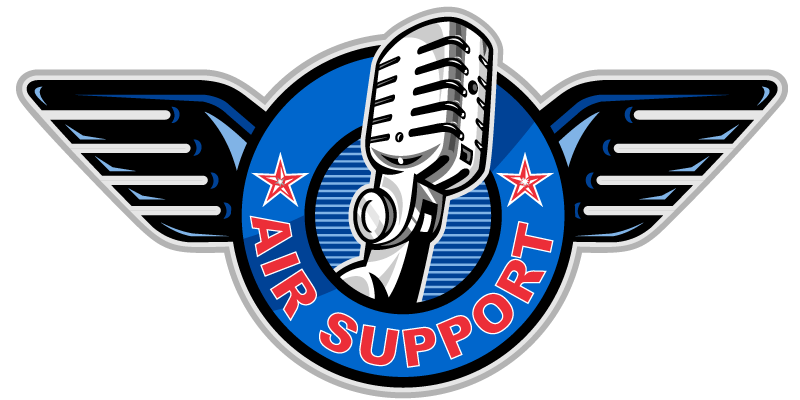Radio Advertising Mistakes - Too Much Copy
Too much copy. It's the death of any radio script. It doesn't matter how brilliant your script is. If it needs to be rushed to fit into the allotted 30 or 60 seconds, it suffers.
I've worked in radio production for a long time, and I can tell you with complete confidence that 50% of the scripts that come across my desk are too long. It's really a hard thing to train out of writers. There are a few ways scripts become too long. Here are a few examples.
- The copy writer fell in love with the script - Even your writer can get too close to their own product. And it's very hard to edit yourself. Especially when you've written a gem. It's hard to put "your baby" to a stop watch and find out that it’s 36 seconds long. It hurts. Especially when you feel like NOTHING can get cut. Every word you laced in was of the highest importance. The truth is it can always be pared down. No matter how much you think it can't. Don’t rush a read to fit the script in. Something can always go. And the script will be stronger for it. Make sure to put it through all the editing stages necessary. Producing a great script that's too long, is like fumbling the ball on the one yard line.
- Client demands - The client ensures you that his name must be in the copy 8 times. Also, you must mention his phone #, his exact address, & his web site. So, what do you have left to work with in a 30 second spot? Not very much. Firstly, please don't mention your name 8 times or list every contact possible. It's a waste of time & message. People don’t listen for this information anymore. They also don’t listen on purpose. They only listen if you can break through their firewall and entice them. You do that by interesting them. You do that by relating your product to one of their needs. 30 seconds is not enough time to evoke real emotion if you need to worry about a laundry list of contacts & name drops. An ad with a salient, relatable, unique message with the client name mentioned once, will be more effective than a messageless ad with the business mentioned 10 times. Earn the listeners attention first. Tell them where to find you last. Even then, keep it very simple.
- Reading an ad in your head - I can't tell you how many times I've received long scripts that the writer assures me are timed out fine. I've gotten into arguments over it. The writer will storm down and read the script in front of me to prove it can be done. It doesn't matter if it can be done though. It must be done properly. A good commercial is read no faster than the average person speaks. It's impossible to retain any information when the biggest challenge is just to make it fit to time. All writer's time their own scripts after completion. Unfortunately, they usually time them while reading the copy in their head. This is a mistake. People read much faster in their head than out loud. Plus, you'll leave out important elements of speech. Like breath. Breathing takes up about 10% of your time. Three seconds in your 30 second ad. All too often, producers need to cut out breaths in order to fit in more copy. Don't let this happen with your message! Real people breathe; you want your spot to sound real. Also, allow time for proper inflection. Emphasis & inflection allow words to jump off the page. So, the bottom line is, read scripts out loud when timing. Not under your breath either. Out loud. In the same way you want it to be read when it becomes real. It takes more time than you might think.
- Timing based on number of lines or words. The problem with timing like this is you assume all words are created equal. This isn’t true when you get into numbers and websites. Writing an address like 3425-112th street doesn't take up much space on the page. But when it's read, it really is "Thirty-four, twenty-five - One hundred Twelfth Street." Much longer! www.abccompany.com becomes a lot longer when you add the "W's" and "dots" too. Although, you shouldn’t be saying (www.) anymore anyways. Another poor assumption is that all scripts will be read the same way. Pacing is an important thing to account for. You may want a long dramatic pause. You may want to leave long stretches for sound effects to create an atmosphere. You may want to rush on purpose to create a certain feeling. If you time by line or word count, you're ignoring these factors. Don't time your scripts like a computer. We're not writing in binary code. We're writing scripts to be voiced by people, like people, to be heard and understood by people.
Here’s an example to chew on. Take a listen to the audio posted below. The first cut is a commercial I wrote. It’s the original copy of the script. I haven’t edited out any of the lines I like for time. It also has more information. The 2nd piece of audio is the edited version.
Which one is more effective?
The only way to properly time your script is by reading it out loud the way you want it to be read. It really isn't that hard to do. In fact, I often suggest writing less than you need. There's nothing better than a dramatic script that has very little copy. The pauses generated can be much more valuable than any word you can think of.
Let your scripts breathe! Or they will suffocate.
